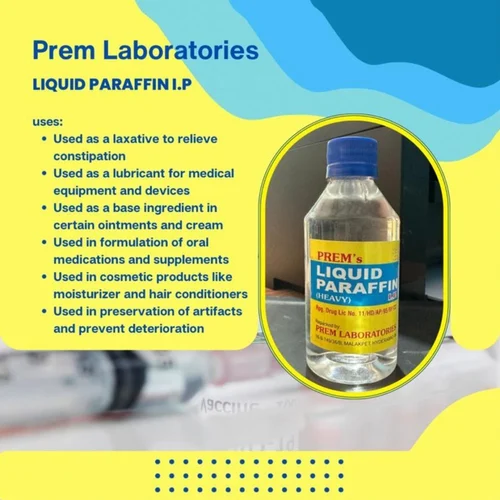Liquid paraffin has long held its place as a staple in UK households, thanks to its wide range of applications in health, beauty, and industry. From soothing dry skin to relieving constipation, this versatile product continues to be in high demand for both medicinal and cosmetic use. Despite its understated profile, liquid paraffin deserves the spotlight for its effectiveness and affordability.
Across online forums and search trends in the UK, there’s been growing curiosity about this ingredient—especially as people compare it with trending liquid products like liquid blush, fairy liquid, or even liquid smoke. Yet, few realise just how essential and multi-purpose liquid paraffin truly is.
What is liquid paraffin?
Liquid paraffin, also referred to as paraffinum liquidum or mineral oil, is a clear, odourless oil derived from petroleum. Highly refined and purified, it is commonly used in pharmaceuticals and cosmetics due to its non-toxic, non-irritant nature. It’s available in several grades—medicinal, cosmetic, and industrial—each designed for specific purposes.
Unlike other common liquids such as washing up liquid or dishwashing liquid, liquid paraffin is not used for cleaning but rather for health and skincare. It shouldn’t be confused with household or industrial liquids, such as liquid gold or vape liquid, which serve completely different functions.
Common uses of liquid paraffin
Liquid paraffin is perhaps best known in the medical world as a gentle laxative. Taken orally, it acts as a lubricant inside the bowel, making it easier to pass stools and relieve constipation. It’s often recommended for short-term use when fibre-based laxatives prove ineffective or unsuitable.
In skincare, liquid paraffin serves as an effective emollient that helps retain moisture and protect the skin barrier. It is widely used in creams and ointments for eczema, dry skin, and other dermatological conditions. Its inclusion in beauty products is growing in popularity, rivalling more talked-about liquids like elf halo glow liquid filter or olavita liquid solution.
Health benefits of liquid paraffin
:max_bytes(150000):strip_icc()/GettyImages-1177018385-75ce084ef67c4cdc9dab78c790d2ba50.jpg)
One of the standout benefits of liquid paraffin is its ability to soothe and hydrate extremely dry or sensitive skin. It forms a barrier over the skin, preventing water loss and offering long-lasting moisture—ideal during the harsh British winter. It’s also safe for use on babies and people with conditions like psoriasis or ichthyosis.
Beyond skincare, the oil’s role in digestive health is vital. When taken as directed, it provides effective relief without harsh stimulation of the intestines, unlike other stronger laxatives. For many UK residents, it’s a preferred natural remedy for mild constipation, especially in older adults and individuals recovering from surgery.
Side effects and safety considerations
Although generally safe, liquid paraffin should be used with care. Oral use over long periods can lead to reduced vitamin absorption and, in rare cases, lipid pneumonia if aspirated. That’s why it’s essential to follow dosage instructions and consult a pharmacist or GP before prolonged use.
When applied topically, it may cause minor irritation or clogged pores in acne-prone skin. However, reactions are rare. It’s also worth noting that liquid paraffin is flammable, so it should be kept away from open flames—a safety note that echoes the warnings seen on washing up liquid products in supermarkets like Tesco.
Liquid paraffin in the UK market
In the UK, liquid paraffin is widely available in pharmacies, supermarkets, and online retailers such as Boots, Amazon, and Superdrug. Prices can range from £3 for a small bottle to £20 or more for larger medical-grade containers. Many trusted British brands continue to offer high-quality formulations that meet health and safety standards.
Compared with novelty or niche liquid products like liquid leisure or liquid death, liquid paraffin remains a practical and necessary item in everyday life. Its affordability, safety, and multi-functionality make it a must-have for households, especially for those with skincare or digestive health concerns.
Regulations, travel and usage tips
UK travel guidelines permit carrying small amounts of liquid paraffin in hand luggage, typically under 100ml, following the standard liquid restrictions on flights. Always store it in its original container and declare it at security if needed. When travelling abroad, check local regulations, as classifications may differ.
To extend shelf life, store the oil in a cool, dry place away from sunlight. Always read the label and avoid using expired products. Parents using liquid paraffin for children should consult a healthcare provider to ensure correct dosage and suitability.
Conclusion
Liquid paraffin continues to be a reliable solution for both skincare and digestive health in the UK. Its gentle yet effective properties make it suitable for all ages and skin types, and it remains one of the most accessible treatment options on the market. Whether used in a medical, cosmetic, or home setting, its value is undeniable.
With increasing interest in different types of liquid products, from dishwashing liquid to cosmetic serums, it’s worth remembering that liquid paraffin has stood the test of time. Its practicality, affordability, and safety profile make it a smart addition to any home medicine cabinet.
Frequently Asked Questions (FAQs)
What is the difference between liquid paraffin and Vaseline?
While both are petroleum-based, Vaseline is semi-solid (a type of petroleum jelly), whereas liquid paraffin is a fluid form used for different applications.
Can liquid paraffin be used on the face?
Yes, especially for dry skin. However, those with acne-prone skin should patch test first.
Where can I buy liquid paraffin in the UK?
It’s available at major UK retailers such as Boots, Superdrug, and online marketplaces like Amazon.
Is liquid paraffin safe to ingest?
Yes, when used as a laxative in the correct dosage. Long-term oral use is not recommended without medical advice.
Can I take liquid paraffin on a plane?
Yes, as long as it’s in a container under 100ml and follows airport liquid restrictions.
You may also read: What Is the Punishment for Taking Money from a Deceased Account UK? Legal Penalties Explained


